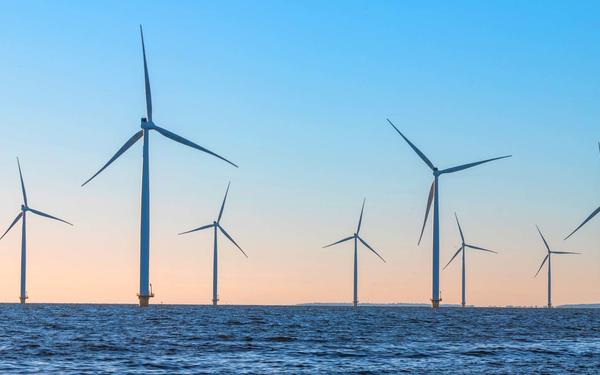News and Events
"No Miracles Needed" - ideas for saving the planet
Critically acclaimed authors published by Cambridge University Press set out in these new and forthcoming titles some of the things they say can be done towards solving the planetary problems created by humanity - from rolling out existing technologies, and increasing pace of change, to the choices we can make as individuals.

No Miracles Needed: How Today’s Technology Can Save Our Climate and Clean Our Air
The Financial Times (London) has published a glowing review of No Miracles Needed: How Today’s Technology Can Save Our Climate and Clean Our Air by Mark Z Jacobson in a piece about "notable new books on climate and the environment". The reviewer says the title from Cambridge University Press is the "weightiest" of the selection they have reviewed.
Professor Jacobson is a Stanford University professor who has spent years making the case that wind, water and solar power can provide 100 per cent of the world’s energy. In the book, which leapt into Amazon’s top 100 sellers on release, he says that, rather than invest in developing new, experimental technologies, money should go into deploying the technologies we already have in the shift from fossil fuels to clean energy.
The FT reviewer praises the book saying "... the book explains in meticulous — and I do mean meticulous — detail how each of the wind, water and solar technologies works, and why they are needed to eliminate air pollution, global warming and energy insecurity."
Find out more from the author in this interview or this opinion peice with The Guardian newspaper
How to Fix a Broken Planet: Advice for Surviving the 21st Century
Another newly published book offering insight into the practical interventions we can apply now is by Julian Cribb, whose previous book published with Cambridge – Earth Detox – has a five-star rating on Amazon.His new book, How to Fix a Broken Planet: Advice for Surviving the 21st Century, published at the start of the year already has a five star rating on GoodReads.
It describes the ten catastrophic risks that menace human civilisation and our planet, and what we can all do to overcome or mitigate them. It explains what must be done globally to avert each megathreat, and what each of us can do in our own lives to help preserve a habitable world. It offers the first truly integrated world plan-of-action for a more sustainable human society - and fresh hope.
Gordon Weiss, World Food Programme's East Africa co-ordinator, said the book is “... nothing less than a luminous plan-of-action for a new human epoch which our grandchildren might not only survive but might flourish within, unleashing the glory of human creative potential, should we choose to fix our broken planet.”
A must-read for anyone seeking sound practical advice on what citizens, governments, companies, and community groups can do to safeguard our future.
Five Times Faster: Rethinking the Science, Economics, and Diplomacy of Climate Change
A title to look forward to, Five Times Faster: Rethinking the Science, Economics, and Diplomacy of Climate Change, is being published at the end of March this year. It is written by Simon Sharpe, Director of Economics, Climate Champions Team and Senior Fellow at the World Resources Institute. Two years ago, he noted: “Forecasters of the energy transition keep making the same mistake: radically underestimating the pace of change” and that these experts were “consistently wrong in the same direction”- changes are being made faster than predicted.
Talking about his forthcoming book in a LinkedIn post he says it “ ... is about why we need to change this invisible infrastructure, and how we can do it. People are already fighting for these changes, but they need more support. Limiting warming to 1.5°C means decarbonizing the global economy five times faster this decade than we managed over the last two decades. For that kind of acceleration, winning these less visible battles is essential.”
Simon is joining three other opinion formers at the FT Weekend Oxford Literary Festival in a panel discussion asking “what’s preventing us from acting on climate change and debate the practical steps businesses should take to counter it.”
Climate Breakdown: Habit, Fear, and Progress is on Thursday 30 March 2023 at 2pm UST
Other acclaimed publishing from Cambridge University Press about finding achievable solutions to environmental problems, include:
What can you do to live a healthier and more environmentally friendly life? This straightforward and easy to understand book outlines the actions we can take everyday that have an impact on climate change, the oceans, the land and other species.
Feeding the world, climate change, biodiversity, antibiotics, plastics, pandemics - the list of concerns seems endless. But what is most pressing, and what should we do first? Mike Berners-Lee has crunched the numbers and plotted a course of action that is full of hope, practical, and enjoyable
Plastic pollution has impacts on soil, food, air, and water. The book demonstrates solving our plastic problem requires collaboration across disciplines; innovations in science, law, and design will be essential. Reading it will benefit anyone interested in learning more about the harms and solutions associated with plastic pollution.
We help people gain knowledge and skills to address global sustainability challenges such as climate change. This is core to our mission. Our publishing and learning materials enable learners, teachers and communities to engage with world-leading research and thinking on sustainability issues. Our strategy, culture and day-to-day operations also aim to protect the environment and uphold the highest standards for human rights, labour and anti-corruption.





